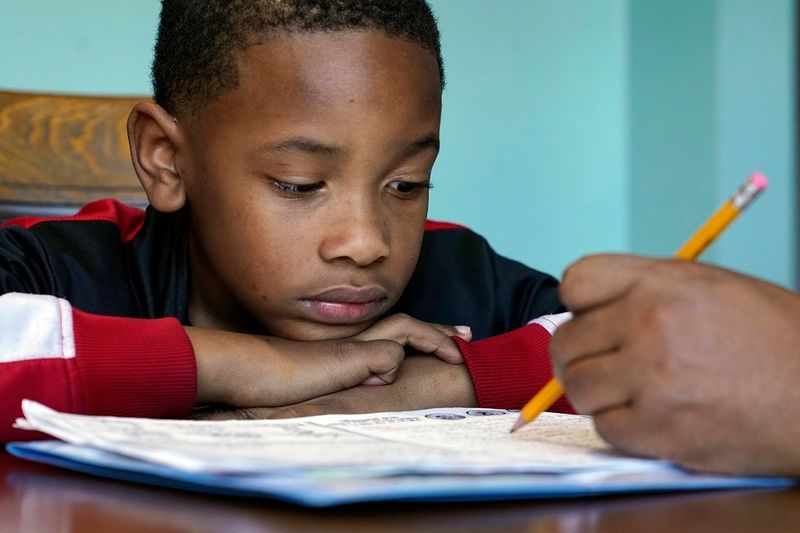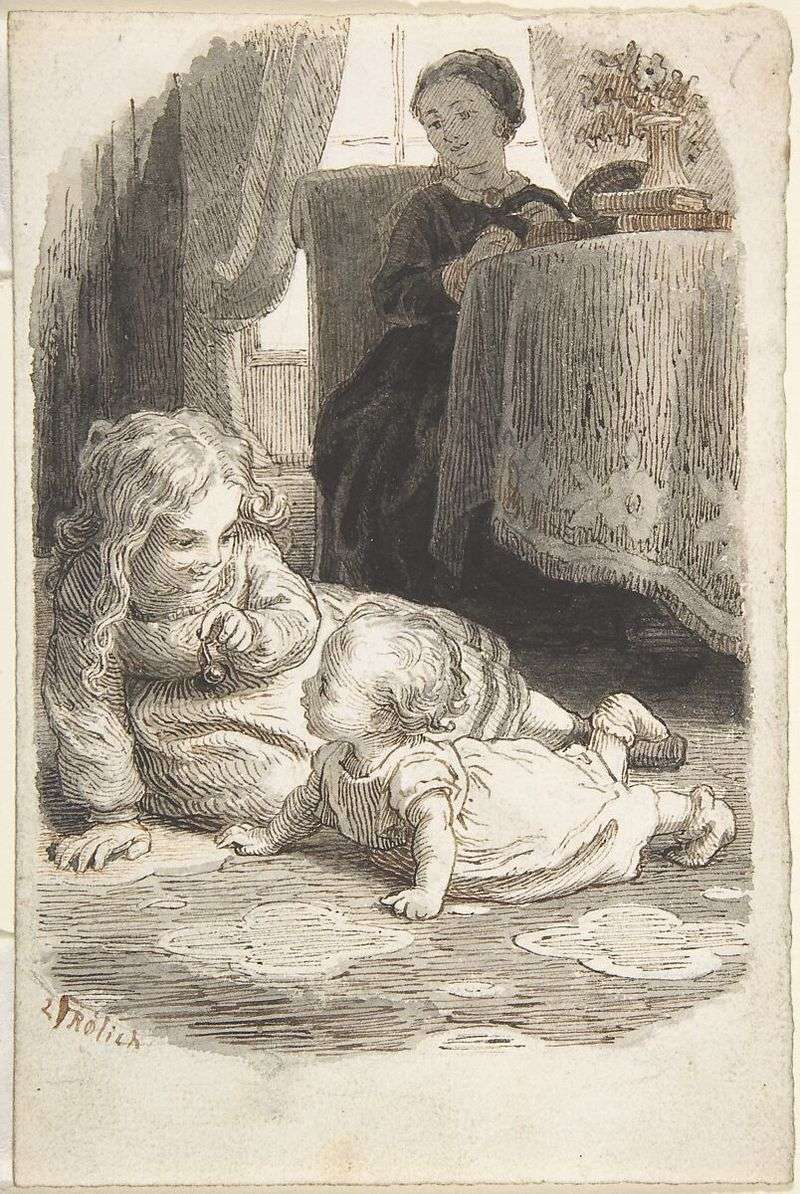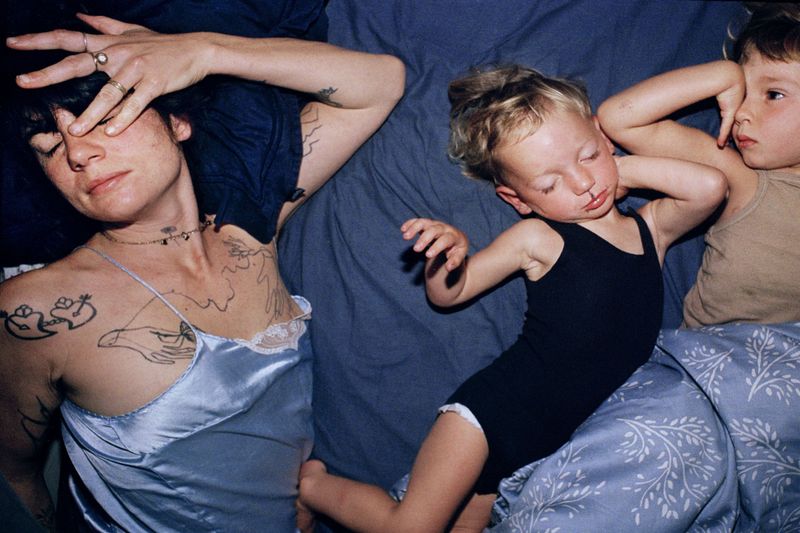Exploring the subtle signs and experiences that may indicate a mother who hesitated in her maternal role, this article delves into the unnoticed tales and moments that shaped childhoods in unique ways. Here are 12 distinct signs gathered from real-life stories and observations.
1. Infrequent Affection

Was your upbringing marked by a noticeable lack of hugs and kisses? Perhaps your mom often seemed too busy or distracted to show physical affection. This absence of warmth can leave a child feeling unloved and insecure. It’s not about lacking love but a sign that she might have been overwhelmed.
While some kids receive cuddles and bedtime stories, others grow up wondering if they were truly cherished. Reflecting on these moments, one may realize their mom’s struggles, trying to balance personal desires with maternal responsibilities. It’s a subtle but telling sign of reluctance.
2. Lack of Involvement in School Activities

Did you often find your seat empty at school events? When other kids saw their parents cheering them on, was your mom absent or uninterested? This lack of participation can make a child feel insignificant.
Maybe she was busy with work or personal issues, but missing those crucial moments speaks volumes. You might have learned early on to rely on yourself or other family members for support. Growing up with such experiences subtly shapes one’s perception of love and support. It reflects a deeper struggle within her, trying to manage motherhood with her own life.
3. Frequent Babysitters

Were babysitters a significant part of your childhood? Many adults recall a series of caregivers rather than quality time with mom. This reliance on babysitters, albeit necessary, might suggest she craved her own space.
Children need stability, and frequent changes can lead to feelings of instability. It’s not just about childcare but what these choices reveal about her emotional availability. Reflecting on this aspect unveils an intricate balance of personal freedom and parental responsibilities she navigated. Such experiences paint a vivid picture of a mom wrestling with her own desires.
4. Indifference to Milestones

Did your achievements often go unnoticed? While some parents celebrate every milestone, others appear indifferent. This lack of recognition can be disheartening for a child seeking approval and pride from their mom.
Such indifference might stem from her own struggles with accepting the motherhood role. When a child’s accomplishments aren’t acknowledged, it can lead to feeling undervalued. These moments, while small, contribute significantly to how we perceive our worth. Her seeming indifference might mask a more profound internal conflict about motherhood’s demands.
5. Prioritizing Personal Time

Did your mom often choose her hobbies over spending time with you? While everyone needs personal time, consistently prioritizing it over parental duties can signal reluctance.
Children notice when they’re not the priority, which can impact their sense of importance. This behavior can imply a mom who struggles between self-care and parenting. The child, left to navigate with limited guidance, might develop independence early on. Such dynamics reflect a complex relationship with motherhood, where personal desires often overshadowed parental responsibilities. It’s a nuanced, subtle form of disengagement.
6. Minimal Guidance on Life Skills

Did you feel lost learning basic life skills? Some mothers guide their kids through every step, while others let them fend for themselves. This lack of guidance might suggest she was grappling with her own priorities.
Navigating life’s challenges without support fosters independence but can leave gaps in understanding. Reflecting on this aspect highlights a mom who might have been preoccupied, unable to provide the necessary guidance. It’s not just an absence of teaching but an indication of her struggle with the demands of parenting, revealing much about her own uncertainties.
7. Emotional Distance

Did you ever feel like there was an emotional barrier between you and your mom? Emotional distance can create a silent chasm, leaving kids feeling isolated.
This disconnect isn’t always intentional but might be a sign of her internal conflicts about parenting. Often, it’s a reflection of her struggle to balance her identity with being a mother. Kids notice this distance, even if they can’t articulate it. It shapes their emotional development, often leading to self-reliance. Understanding this distance offers insight into the complex dynamics of reluctant parenting.
8. Reluctance in Family Traditions

Were family traditions a low priority? Celebrations can strengthen family bonds, yet some mothers appear disengaged during these times. This reluctance hints at deeper issues.
Missing out on these events communicates a lack of interest in family cohesion. It reflects an internal struggle with her role within the family unit. Kids, perceiving this lack of enthusiasm, often feel the void during family gatherings. Such behaviors, though subtle, reveal much about her relationship with motherhood, where personal reservations might overshadow traditional expectations. It’s a quiet but telling sign of her ambivalence.
9. Avoidance of Difficult Conversations

Did your mom shy away from serious talks? Some children grow up without guidance on tricky topics, sensing avoidance or discomfort from their mothers.
This reluctance may arise from her uncertainty or inability to deal with parenting challenges. Such avoidance influences how children perceive communication within family dynamics. It often leads to developing communication skills independently. This silence speaks volumes of her internal conflict between parenting responsibilities and her comfort zone. Understanding this aspect provides a glimpse into the complexities of navigating motherhood unwillingly.
10. Preference for Adult Company

Did your mom often prefer adult gatherings over spending time with you? This choice can suggest a longing for a life beyond motherhood.
While socializing is healthy, consistently choosing adults over children might indicate deeper issues. Kids may feel sidelined, questioning their significance in her life. This preference reveals an internal struggle with embracing the maternal role fully. Such dynamics shape a child’s understanding of relationships and self-worth. The preference for adult company unveils how personal desires sometimes eclipsed her parenting duties, hinting at a reluctance in embracing motherhood wholeheartedly.
11. Inconsistent Discipline

Did your mom’s rules change frequently? Inconsistent discipline can confuse children, leaving them unsure about boundaries.
This inconsistency might suggest her uncertainty in her parenting role. It reveals a struggle to balance authority with nurturing, often resulting in chaos. Kids learn quickly when rules aren’t steadfast, leading to testing limits. Understanding this inconsistency unveils much about her internal conflict with parenting’s demands. It speaks of a mom torn between enforcing rules and maintaining a harmonious environment. Such experiences color a child’s perception of stability and structure in family life.
12. Preference for Solitude

Did your mom need solitude more than other mothers? Retreating into her own world can signal a need for space from parental duties.
While solitude is necessary for reflection, craving it excessively might hint at deeper reservations about motherhood. Kids notice when their presence isn’t welcomed. This behavior can affect their sense of belonging and trust. Understanding her preference for solitude offers insights into her personal struggles with embracing her role fully. It’s a quiet resistance, subtly indicating a mom who might not have wanted the full weight of motherhood.

